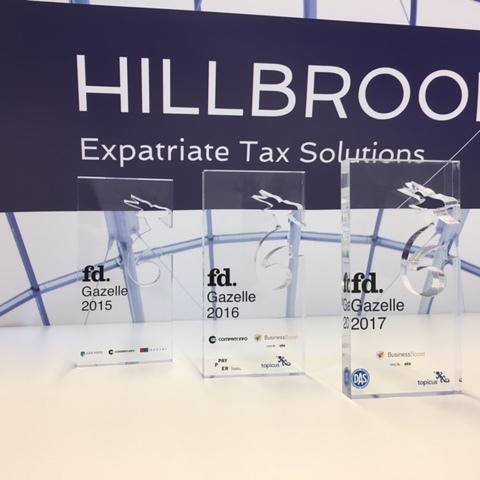Further changes 30% ruling expected as of January 1, 2024
Introduction
Recently the Dutch House of representatives (‘Tweede Kamer’) has adopted two amendments to the current 30% ruling legislation. These amendments apply as of January 1, 2024 and January 1, 2025. However, please note that the Dutch Senate (‘Eerste Kamer’) will first have to approve these amendments. The necessary voting is scheduled for December 19, 2023. Below, we inform you in more detail on these two amendments.
Amendment 1: Adjustment of the maximum tax-free allowance
The first amendment concerns the scaling down of the 30% ruling and provides that, as of 1 January 2024, the tax-free allowance will be set at:
- Maximum 30% of the wage (including the net tax free allowance) during the first 20 months of the 5 year (60 months) period;
- Maximum 20% during the next 20 months;
- Maximum 10% during the next 20 months.
After 60 months, the maximum duration of the 30% rule expires. In case of a decision with a shorter duration than 60 months, the same percentages and periods apply.
Example
The 30% ruling is granted for the period of March 1, 2024 through February 28, 2029. The employee receives a monthly wage of EUR 10,000.
- During the period of March 2024 through October 2025, the net tax free allowance per month amounts to EUR 3,000 (EUR 7,000 is subject to taxation);
- During the period of November 2025 through June 2027, the net tax free allowance per month amounts to EUR 2,000 (EUR 8,000 is subject to taxation);
- During the period of July 2027 through February 2029, the net tax free allowance per month amounts to EUR 1,000 (EUR 9,000 is subject to taxation).
Transitional law Amendment 1
For employees for whom the 30%-ruling is applied over the last wage tax period of 2023 (usually December 2023), transitional law is included in the amendment. For these employees, the maximum tax free percentage remains 30% of the wage (including the net tax free allowance) for as long as the 30% ruling has been granted with the current employer and subsequent employers.
When changing the 30% ruling to a new employer the transitional law may remain to be applicable, provided that there is no so-called ‘ interruption’ There is not such an interruption if the employee concludes a new contract within 3 months after the material ending of the old contract. Beware of garden leave cases where the formal ending might be later than the material ending of the employment.
Amendment 2: Abolishment partial non-resident taxpayer regime
This amendment is about the so-called ‘partial non-resident taxpayer regime’, that will be abolished. Right now, 30%-rule holders who are tax resident in the Netherlands, can opt to be treated as partial non-resident taxpayers. As a result, they are normally exempt (exceptions apply) from taxation for Box 2 (substantial shareholding) and Box 3 (savings and investments) income. The proposed implementation date of this amendment is January 1, 2025.
Transitional law Amendment 2
Again, for employees for whom the 30%-ruling is applied over the last wage tax period of 2023 (usually December 2023), transitional law is included in this amendment. For these employees, the possibility to opt for the partial non-resident status remains applicable until January 1, 2027 for as long as the 30% ruling has been granted with the current employer and subsequent employers. Provided that there is no so-called ‘ interruption’ (see explanation above). If there is such an interruption the abolishment of the partial non-resident taxpayer regime will apply as of the moment of the interruption, but not earlier than January 1, 2025.
30% tax ruling benefit capped (already announced in 2022)
As of 2024, the maximum 30% ruling tax free allowance will be capped, by limiting the basis to a maximum remuneration of EUR 223,000 gross, which is indexed annually. This change was already announced in 2022.
Again, also transitional rules apply here for individuals for whom the 30% ruling is applied over the last wage tax period of 2022. For these existing 30% rule cases, the cap of the tax free allowance will apply ‘only’ as per January 1, 2026 for 30%-rule grants with the current employer and subsequent employers. Provided that there is no so-called ‘ interruption’ (see explanation above).
For employees who got the 30% ruling on January 1, 2023 or later in 2023, the cap of the tax free allowance will apply as per January 1, 2024 (or the later grant date if granted after January 1, 2024).
Frequently asked Q & A
The 30%-ruling is granted to me in 2022 or earlier and the 30% ruling was applied in the payroll in the last wage tax period of 2022. How will this impact my situation?
You will be able to benefit from transitional law. This implies that:
- The wage cap for calculating the net allowance will apply as per January 1, 2026;
- A maximum 30% net tax free allowance can apply with your current and subsequent employers during the entire 30%-ruling period assuming that there is no interruption (so no maximum 30%/20%/10% regime yet);
- The partial non-resident taxpayer regime will be abolished as of January 1, 2027.
The 30%-ruling is granted to me in 2023 and the 30% ruling was applied in the payroll over the last wage tax period of 2023. How will this impact my situation?
You will be able to benefit from transitional law ‘only’ for Amendment 1 and 2. This implies that:
- In 2024, the wage for calculating the net allowance is capped to a maximum amount of EUR 233,000;
- A maximum 30% net tax free allowance can apply with your current and subsequent employers during the entire 30%-ruling period assuming that there is no interruption (so no maximum 30%/20%/10% regime yet);
- The partial non-resident taxpayer regime will be abolished as of January 1, 2027.
When is there more certainty available on these changes?
Formally we have to wait for the Dutch Senate to approve the 2 amendments which is scheduled for December 19, 2023. Once approved, the proposed changes will become effective as of January 1, 2024 (Amendment 1) and January 1, 2025 (Amendment 2) unless the transitional law applies in your situation.
For completeness we inform you that the above mentioned is based on the current available information (November 24, 2023). No rights can derived from this update in a specific situation. It should be determined for each specific case whether the new legislation will have an impact as per January 1, 2024 or later.






